6 August 1778 Thursday
. . . . . .
Artifacts of the Bianconi vs Piranesi 'Circus of Caracalla' affair 1772-1789
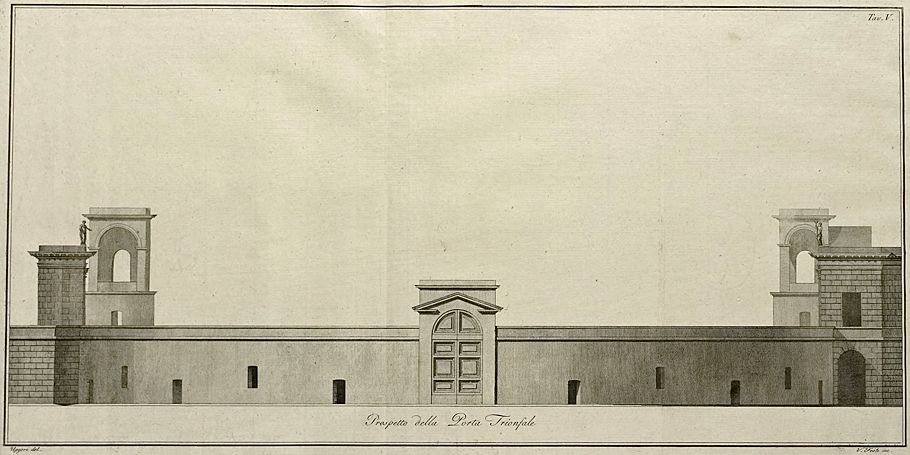
Tavola V Prospectus of the Triumphal Gate
47 y.o. Francesco Piranesi 1805
Le Antichità della Magna Grecia Parte II
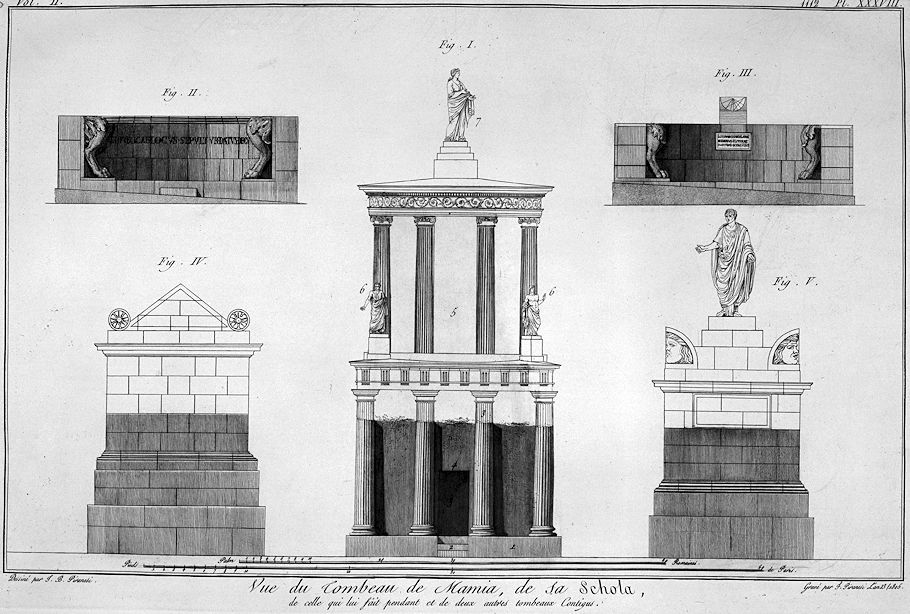
View of the Tomb of Mamia, of her Schola, of that which makes her pendant and of two other Contiguous tombs
Drawn by G.B. Piranesi
Engraved by F. Piranesi Year 13 (1805)
6 August 1812 Thursday
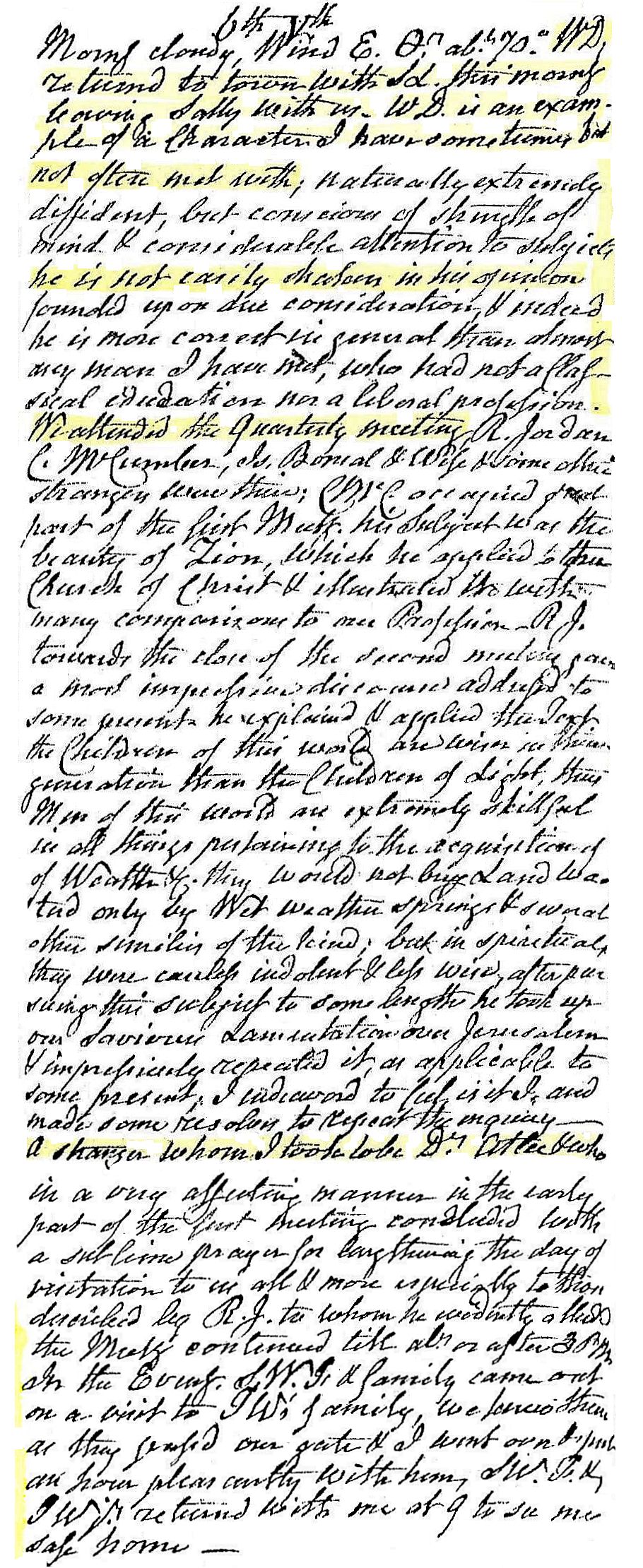
Morning cloudy, wind E, temperature about 70°. WD returned to town with SL this morning leaving Sally with us. WD is an example of a character I have sometimes but not often met with; naturally extremely different, but conscious of strength of mind and considerable attentions to subjects. He is not easily shaken in his opinion founded upon due consideration, and indeed he is more correct in general than almost any man I have met, who had not a classical education nor a liberal profession. We attended the quarterly Meeting, R. Jordan, C. McCumbers[?], Is. Boneal and wife, and some other strangers were there; C.McC. occupied great part of the first Meeting, his subject was the beauty of Zion which he applied to this[?] Church of Christ and illustrated it with many comparisons to our profession. RJ towards the close of the second meeting gave a most impressive discourse addressed to some present. He explained and applied the text--the children of this world are wiser in this generation than the children of light, this men of this world are extremely skillful in all things pertaining to the acquisition of wealth etc. They would not buy land watered only by wet weather springs and several other similes of the .....[?], but in spiritual they were careless, indolent and less wise after pursuing this subject to some length. He took up our Savior's Lamentation and impressively repeated it, as applicable to some present. I endeavored to feel[?] is it I, and made some resolves to repeat the inquiry.
A stranger who I took to be Dr. Attic[?], and who in a very affecting manner in the early part of the first Meeting concluded with a sublime prayer for lengthening the day of visitation to us all and more especially to those described by R.J. to whom he evidently alluded[?]. The Meeting continued to till about or after 3 PM.
In the evening SW Jr. and family came out on a visit to TW's family. We knew them as they passed out gate and I went over and spent an hour pleasantly with him. SW Jr. and TW Jr.[?] returned with me at 9 to see me safe home.
6 August 2000
Philadelphia Museum of Art
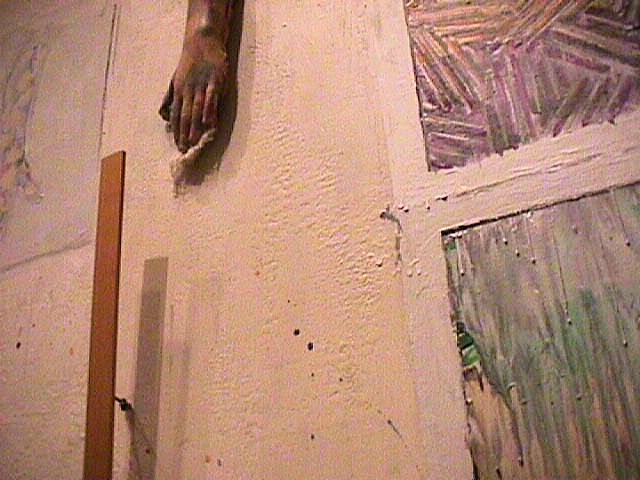
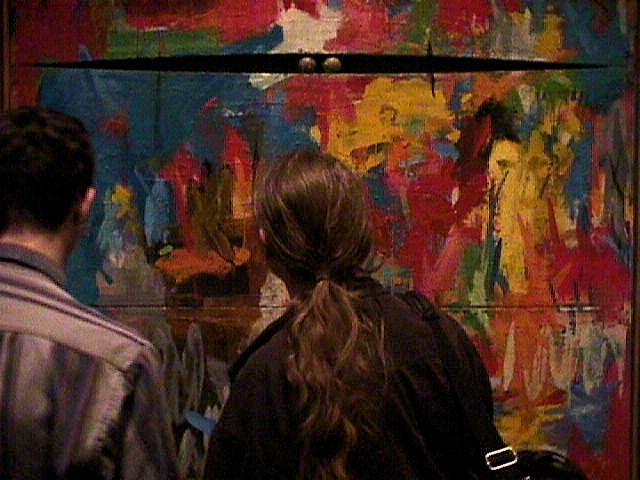
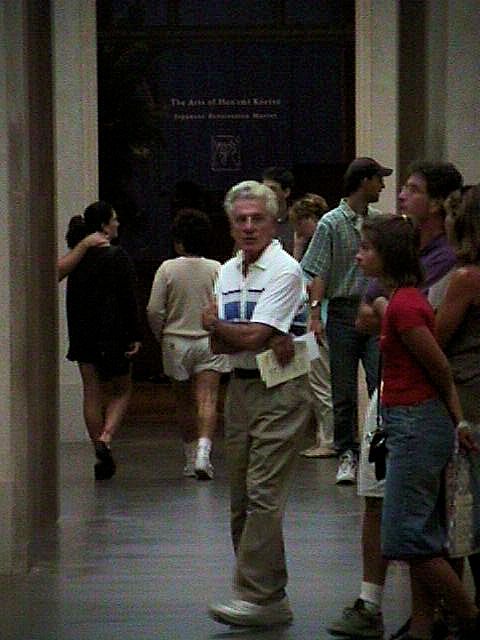
6 August 2004
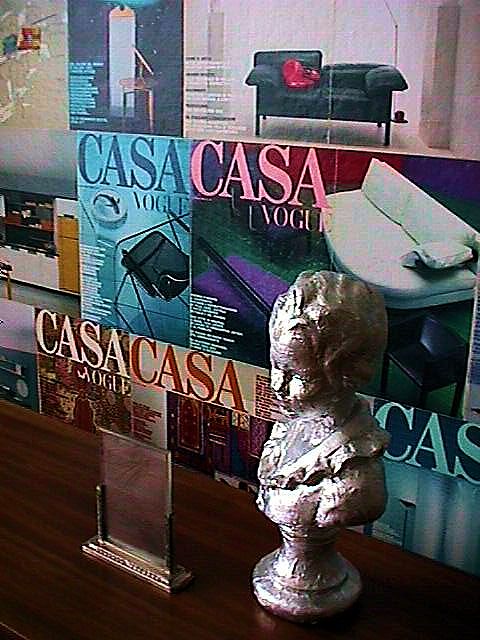
6 August 2007
not looking forward to
I never went to grad school and all I do is "explore and expand upon my most deeply-felt interests."
6 August 2008
"How Did This Happen Revisited"
"...and in 1755 Robert Adam had Kent's Inigo Jones, Campbell's Vitruvius Britannicus and Lord Burlington's Baths, all sent to him in Rome." (London, Guildhall MS 3070 f. 11).
6 August 2023 Sunday
Read this morning in O'Brien's Mrs. Adams in Winter, page 40:
...Russia and the United States shared no borders, stood little chance of coming into serious conflict, and regarded each other's political system with diffident contempt. Russian diplomats in Washington often had occasion to complain of such indifference. In 1811, one observed a silence about Russia in the president's annual message and was outraged: "Feelings of justice and gratitude ought to have led the American government to give more plausible indications of the importance which it attaches to the friendship of Russia and to the unique reception which American commerce enjoys in her ports, as well as of the opinion they have of the deference of our magnanimous Emperor toward the young American nation. They still have not expressed themselves on the subject in a manner that would indicate adequately their capacity and eagerness to appreciate the good will of a power such as Russia." It was all very puzzling. One could only conclude that the Americans were "confused."70
70. Andrei Ia. Dashkov to Nicolai P. Rumiantsev, December 3/15. 1811, in Bashkina, United States and Russia, 804, 807.
I'm not too sure about the "diffident contempt," the "often," or the "outrage." Daschkoff and Miers Fisher appear to have had a quite friendly relationship, at least in Philadelphia in 1812.
Mrs. Daschkoff and Louisa Adams are exact opposite contemporaries in 1812--Daschkoff a Russian diplomat's wife in Philadelphia and Adams an American diplomat's wife in St. Petersburg. Gregoroffsky was well acquainted with Adams, and was, more than likely, well acquainted with Daschkoff as well.
Imaginatively reenacting Francesco of 1778 while in Rome/Italy in 1977--going on the study tour then with the knowledge I have now.
This story will soon be re-orbiting itself--a new temporal condition in graceful cadence with last year. Bilocation's window of opportunity?
Bianconi's Doctoring Piranesi, episode six: "Bianconi's Banishment"
"Louisa Adams's other problem with the tsar was that, because he presided over a police state and because he was vain, he liked to read other people's letters, in the hope of catching a compliment or noticing a resistance. In this prying, he was pleased to see that Mrs. Adams's letters praised him, though displeased that her servant Martha Godfrey was less complimentary, both to himself and to his brother the Grand Duke Constantine. In truth, hardly anyone had a good word to say for Constantine, habitually viewed as a brute and an "empty-headed braggart." If the tsar read his own wife's correspondence, as he probably did, he long ago saw her write of "the full baseness of [Constantine's] character." The tsar became curious to meet Miss Godfrey as someone inexplicably impervious to his imperial accomplishment and personal charm, so he summoned her, upon the pretext of wanting to meet Charles Francis Adams. The tsar was reassured to find that she was not handsome. It made sense to him that ugliness would reproach beauty. The experience was less reassurring for Mrs. Adams."
Michael O'Brien, Mrs. Adams in Winter: A Journey in the Last Days of Napoleon (2010), p. 23-4.
|